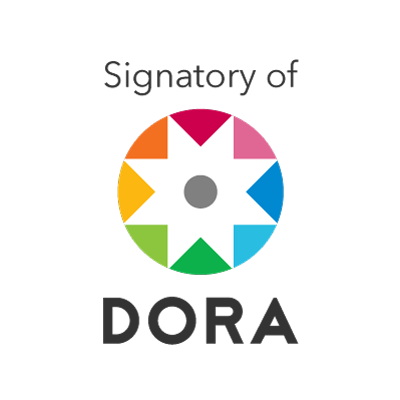Devenir gorda. Proceso de identificaciones y afectaciones deseantes
Resumen
En los últimos años en las Ciencias Sociales han proliferado investigaciones feministas cuya creatividad ha puesto de manifiesto que, frente a la necesidad de aproximarse a las múltiples realidades femeninas, resulta imperioso echar mano también de variados abordajes metodológicos. La autoetnografía es uno de estos métodos que ha venido ganando personas investigadoras adeptas, debido a que su potencia narrativa favorece conectar con mayor nitidez los aspectos teóricosanalíticos con la comprensión más inmediata del ejercicio político de aquello que se investiga. Lo central en este escrito es la contemplación del esbozo experimental de un proceso de identificaciones gordas, que permite vislumbrar cómo se van configurando estructuras socioculturales corporales opresivas, que al ser observadas con cercanía, posibilitan no sólo su reconocimiento explícito, sino además, virajes de resignificación. Devenir gorda es un proceso dialéctico entre saberes poéticos, teóricos y políticos, urdidos desde nuestro deseo humano de afectación, la socialización del género y la fascinación por mostrar el ancho bagaje de conocimientos contenidos en los cuerpos de las mujeres gordas.Descargas
Citas
AHMAD, A. (14 de julio de 2016). Moving beyond body positivity. https:// medium.com/@asamwrites/moving-beyond-body-positivity-81afb1322224
ALEGRE-AGÍS, E. Y RICCÓ, I. (2017). Contribuciones literarias, biográficas autoetnográficas a la antropología médica en España: el caso catalán. Salud colectiva, 13(2), 279-293.
ALVAREZ CASTILLO, C. (2014). La cerda punk. Ensayos desde un feminismo gordo, lésbiko, antikapitalista & antiespecista. Valparaíso: Trío editorial.
BLANCO, M. (2012). ¿Autobiografía o autoetnografía?. Desacatos, (38), 169-178.
BOCHNER, A. P. (2019). Ya es hora: narrativa y el yo dividido. En S. Bénard (Comp.), Autoetnografía. Una metodología cualitativa (pp. 95-121). México: Universidad Autónoma de Aguascalientes y El Colegio de San Luis, A.C.
CONTRERA, L. Y CUELLO, N. (2016). Cuerpos sin patrones. Resistencias desde las geografías desmesuradas de la carne. Buenos Aires, Argentina: Madreselva.
COOPER, C. (1998). Fat & Proud: The Politics of Size. London: The Women´s Press.
DESPENTES, V. (2007). Teoría King Kong. España: Editorial Melusina.
ELLIS, C., ADAMS, T. E. Y BOCHNER, A. P. (2010). Autoethnography: an overview. Forum: Qualitative Sozialforschung / Forum: Qualitative Social Research, 12(1). http://www. qualitativeresearch.net/index.php/fqs/article/view/1589/3095.
ESTEBAN, M.L. (2013). Antropología del cuerpo. Género, itinerarios corporales, identidad y cambio. España: Edicions Bellaterra, S. L.
GILLIGAN, C. (2013). La ética del cuidado. Barcelona: Fundació Víctor Grífolsi Lucas.
LAGARDE, M. (1996). El género. En Género y feminismo. Desarrollo humano y democracia (pp. 13-38). España: Horas y Horas.
LAMAS, M. (Comp.) (1996). El género. La construcción cultural de la diferencia sexual. México: Programa Universitario de Estudios de Género y Porrúa.
LUCKETT, S. D. (2018). Young, gifted an fat. An autoethnography of size, sexuality, and privilege. New York: Routledge.
MASSON, L. (2017). Epistemología rumiante. México: Pensaré cartoneras.
OSORIO, J. (2005). Fundamentos del análisis social. La realidad social y su conocimiento. México: FCE.
PIÑEYRO, M. (2016). Stop Gordofobia y las panzas subversas. España: BALADRE y ZAMBRA.
PIÑEYRO, M. (2019). 10 gritos contra la gordofobia. España: Penguin Random House Grupo Editorial.
RAMBO RONAI, C. (2019). Múltiples reflexiones sobre el abuso sexual infantil: Un argumento para una narración en capas. En S. Bénard (Comp.), Autoetnografía. Una metodología cualitativa (pp. 123-152). México:Universidad Autónoma de Aguascalientes y El Colegio de San Luis, A.C.
RICHARDSON, L. Y ST. PIERRE, E. (2005). Writing: A method of inquiry. En N. Y. Denzin e Y. S. Lincoln (Eds.) The Sage Handbook of Quialitative Research (pp. 959-978). California: Sage.
SCOTT, J. W. (2001). Experiencia. Revista de Estudios de Género, La Ventana, 2(13), 42-73.
WOLF, N. (1991). El mito de la belleza. Barcelona: Emecé.













